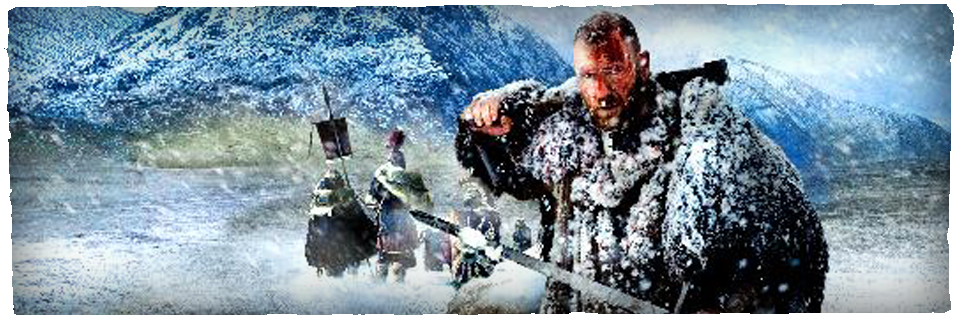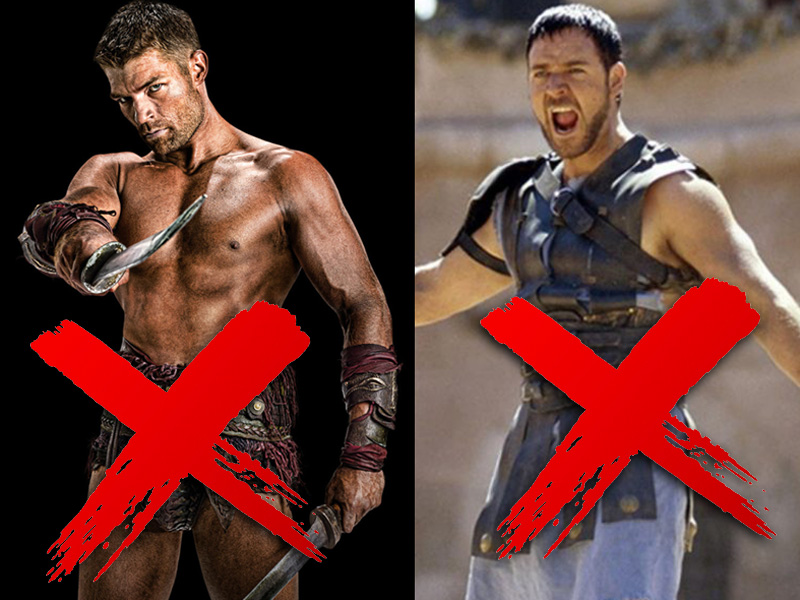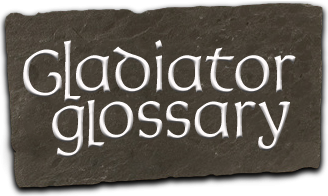
 home | about | blog | comments | Border Reivers |Brothers Of The Sand |Kingdom Series | Oathsworn Series
home | about | blog | comments | Border Reivers |Brothers Of The Sand |Kingdom Series | Oathsworn Series
Things you will learn from The Beasts Beyond the Wall
Not all gladiators are Spartacus…
21 January 2018
 The first book in the Brothers of the Sand series is published today. I have revealed a few paragraphs from various points in the story on my Facebook page over the past few days, and you can read the opening sequence below. I hope that is enough to encourage you to read on – and if it is, these are some of the things you will learn from the reading…
The first book in the Brothers of the Sand series is published today. I have revealed a few paragraphs from various points in the story on my Facebook page over the past few days, and you can read the opening sequence below. I hope that is enough to encourage you to read on – and if it is, these are some of the things you will learn from the reading…
Most gladiator trainers thought a layer of fat aided defence against cuts and stabs. That, with the diet of grain porridge and fava beans, or leeks, ensured that most gladiators were closer to sumo wrestlers than the homoerotic posers of the Spartacus TV series or Russell Crowe and Co in Gladiator. If a gladiator survived to get the rudis, the wooden sword denoting that he was no longer a gladiator and no longer a slave, he was probably in his late-30s, which was old by any standards in ancient Rome.
He would be plagued by aching joints from the endless training, exacerbated by the weight he would now put on when not training. He may have old wounds, too. A famous gladiator Sergius, was documented by Juvenal as surviving until 40 before getting his rudis. By that time he had damage to his face from his helmet and a weeping eye and an injured arm.
Few gladiators ever made it that long – but the lifespan of normal Romans in the poor areas was not long anyway – and some who knew their next contest meant death preferred to take their own life, even if it meant, as in one case, choking yourself to death on a toilet sponge.
Free men also occasionally volunteered to be gladiators (auctorati). Usually they were social outcasts, freed slaves, discharged soldiers, or former gladiators who had been liberated on retirement, but chose to return for a period of service. They signed on for a fee, and swore an oath of absolute submission to the 'Lanista' – the trainer - to be 'burned, flogged, beaten, or killed if so ordered' (Petronius, Satyricon, CXVII; Seneca, Moral Epistles, XXXVII.1).
On a social scale, gladiators ranked slightly lower than dog-shit on your sandal. They were slaves for a start and slaves were, essentially, furniture. Coupled with that was the profession of gladiator, which was thought beneath most citizens. In the early days of the Republic, however, some of the ruling classes were known to have leaped into the ring – Claudius had to put a stop to this with a law. Incidentially, Claudius was the emperor to whom the famous phrase: 'We who are about to die salute you' was dedicated. It was by a band of disgruntled gladiators about to take part in a naumacha, a naval battle on a lake outside Rome and pretty sure that, even if they fought well, they were likely to drown in their armour. The Emperor's response was a laconic: 'or not, as the case may be.' It was the one and only time this epithet was ever uttered
Women also became gladiators (Amazones) but were limited to fighting untrained, unarmed noxii, the criminals condemned to the arena and uses mainly for their salacious entertainment value. Septimus Servius, the Emperor current in my tale, banned them.
The strange dichotomy of gladiators was that, reviled as they were by polite society, they were also adored like rock stars - their names appeared on wall graffiti, on cups and plates and even the mosaics in those same polite homes. Women swooned for them and even respectable wives lost their heads.
Juvenal's Satire VI tells of that same Sergius mentioned earlier, who eloped with a senator's wife, Eppia. Eppia sacrificed not only her husband but her family and honor to leave with Sergius for Alexandria –all because, according to Juvenal, he was a gladiator. This is the same Sergius with a helmet-smashed face, one weeping eye and an arm that no longer worked.
They did not win or die, either. They were expensive to keep and train and fought, on average, three or four times a year only. Deaths had to be paid for and provincial contests rarely resulted in dying because town councils were reluctant to put up the cash. The big games in Rome, usually put on by the Emperor or the Senate, was another matter – but only the very best took part in that, so the higher you ranked, the more likely you would end up in the Flavian, better known as the Colisseum – and the more likely you'd have to fight to the death. But contests had referees to make sure the fights were fair and, in the end, the crowd could vote you a 'missus' – a let-off – if you failed but fought well.
Gladiators were, therefore, regarded highly enough to be part of your dining-room art – but you wouldn't invite one to dinner. They were reviled and tainted by the blood they spilled and the only people ranked lower than them on a social scale were those free volunteers who sacrificed self-autonomy for the period of the contract and gave up civil rights and honour.
Welcome to The Beasts Beyond the Wall …
The Beasts Beyond the Wall prologue
The opener for the first Brothers of the Sand books…
5 January 2018
ROME
In the tenth year of Lucius Septimius Severus Augustus, Father of His Country,
Conqueror of Parthia in Arabia and Assyria, Pontifex Maximus
The man ran at Drust, screaming, fat wooden cudgel held high; behind him came others, yelling and shouting. One was laughing, but Drust paid him no more than an eye-blink.
He dropped a shoulder, moved slightly, slammed a fist into the belly of the screamer and then half spun while the air whoofed out of the man and he blundered on in staggering baby steps. He fell and clattered into big Pacuvius, who looked down at him with a mixture of disgust and astonishment, then smashed him with a downward hammer of fist.
'Get them. Get the fat man.'
Drust saw the one roaring this out, the same one who had been laughing. He wore a bucco mask, the grotesque features made more lurid in the mad leaping flames of discarded torches; the giant shadows capered on the walls.
Pacuvius started kicking the downed man, whose mask flew off – Pappus, the old fool, Drust saw. They were all fabula attellana, the characters of crude theatrical farce.
'On your right.'
Kag was blocking wild swings from another masked man. It was no great trouble, since the swings were tiro. Beyond Pacuvius, Tarquinus had been taken by surprise and was down, bleeding from the head while two more masked men rained cudgel blows on him. The torch-bearers had fled, the litter-carriers were wavering and the front of the litter had dipped where two of them were starting to drop it.
Drust spun to the new threat, blocked the blow, turned his wrist, moved his leg and sprawled the man on his back; the mask of Dossenus the Hunchback flew off and the wild-eyed youth shrieked as Drust raised the cudgel.
A boy. Barely into his teens. Drust hesitated, cudgel in the air; these were the night-stalkers, the well-born arseholes who ran the streets of Rome in the dark, terrorising the luckless. Probably he had done this before, the masks and the shrieks and the surprise being enough to send torch-boys and litter-carriers running.
'Six him,' Kag growled, coming up like a cold wind; his man-boy was down, writhing and clutching his groin.
'It's a child,' Drust said.
'Give him iron,' Kag called over his shoulder and headed for the Bucco. The boy on the ground scrabbled backwards, reached for his cudgel and started back to his feet. Drust cursed, shook his head and slammed two blows into the boy's kidneys. He arched and shrieked, fell down and started weeping.
He would piss blood for a month, Drust thought, and a flicker out of one eye made him half turn and block. Two more were headed for the litter; Bucco was trading blows with Kag while Pacuvius was trying to help Tarquinus; the lanista was hurt but the worst part of that was his pride as a trainer of gladiators. Quintus and Ugo were nowhere to be seen, the litter had been dropped, the bearers gone. It hadn't tilted and was still curtained, but the two who had rushed it were tearing them aside.
There was only Drust.
'Oi,' he called out and one turned. He had the face of Manducus the Glutton and was no boy. No tiro either – here was a cuckoo in the mix. When the other turned, growling from under Maccus the Clown, Drust knew he had a paired set of ludus fighters and they had training swords, twice as heavy as the real thing and heavier than cudgels; they would crack a skull open.
He managed four glissading parries against the pair before one slapped him in the ribs, making him reel and gasp. The other aimed for the head and there was no pull in the blow; it was an egg-breaker, designed to make sure Drust ended up as just a name marked with '6' – killed. Drust wasn't the best, even he acknowledged that – but he wasn't a tiro either; he managed to slip most of the blow, taking the main force on the top of his shoulder, which had the padding of his cloak.
His arm went numb and he lost the cudgel. He staggered back and weaved and dodged as the pair closed in.
There was a sudden joyous barking sound and Maccus the Clown turned in time to see Quintus roar out of a side alley, his grin big and wide as the Circus. Maccus had time to see it – the full, white-toothed force of it – then Quintus shoulder-slammed him to the ground and rammed the blunt end of the cudgel straight in the man's open-mouthed mask. Teeth and blood flew out with the screams and bloodied wood splinters.
'Get the leader,' a voice called from inside the litter. 'The Bucco.'
Drust turned. Quintus and the Glutton were dancing. The rest were down or crawling off.
'Get Bucco,' the voice called again and then Servilius Structus stuck his pig-angry face out of the torn curtains. 'Get him. Little fuck…'
Kag was down on one knee but blocking a rain of blows from Bucco. Drust arrived, trying not to wince at the pain in his ribs and hoping he could fight left-handed. Bucco backed off, pointing the cudgel at Kag and Drust; he was laughing.
'Ankle,' Kag said bitterly. Drust nodded, took a breath to see how badly it pained him and flexed the fingers of his fighting hand; the pin-sharp prickles told him feeling was returning.
'Get him,' urged the hog-voice from the litter and Drust cursed it, then followed the fleeing Bucco up the side alley of the Street of Sandal Makers.
They went up through the fetid, clogged alley, leaping half-seen objects, getting yelled at from windows. In the end, Bucco hit a dead end, leaped for the wall, missed and slithered down. Drust stopped, half bent and gasping. The Bucco gave a short laugh, more tense now, but he clearly fancied he had the upper hand and sprang forward. He is no older than the one I felled, Drust thought – but a cudgel is a cudgel.
He blocked it, felt the difference, heard the shunk of edge on wood. Watched the tip shear off his baton. Bucco snarled from under the mask and the naked steel gleamed.
'Not so cocky now, damnatus, eh?'
He knew a thing or two, Drust thought. Enough to call Drust a slave condemned to the arena. Enough to know Drust was not so cocky at all when faced with a bloody sharp gladius and was looking for a way out. There was a doorway, curtained with beaded strands and Drust ducked into it. He heard Bucco stamp after him.
The room was small and grubby, the side door of a wine shop. There was a man in a leather apron shaking a sizzling pan over a stove; he looked up with astonishment as Drust came in. Beyond him and the amphora counter were a few crude tables whose patrons looked up from their dice game. Blue reek and rich cooking meat smells choked the air.
'Who the fuck are you?' demanded the cook.
'Dead man is who he is.'
Bucco came through the doorway and the cook yelped at the sight of the steel. Drust leaped the bar and the patrons scattered; they were Vigiles, he saw. Rome's night-watch. Saved…
Bucco rushed to the counter and started over it. Drust feinted running, darted back, grabbed the nearest pot and slammed it into Bucco's masked face. There was a gurgling shout as the man-boy went backwards towards the floor and the cook yelled again and backed away from the mayhem.
Drust leaped back over the counter, gasping and hurting and angry at this delinquent youth for putting him through all this. He swooped up the dropped sword and ripped off the boy's mask. To his surprise, the face grinned up at him. Young, sweat-sheened, wild curls of hair, the eyes glazed a little with pain above a white tunic. A fringe of pathetic beard fuzz – he was just old enough to wear a toga yet his look was all sly and venal.
'Missio,' he said, holding up a finger and grinning at this, the gladiator's plea for mercy.
'Recipere ferrum,' Drust growled back – prepare to receive the iron. He meant it; the youth saw it and lost his grin.
'Ho,' he said. 'Just a bit of fun…'
'Get off your Imperator.'
The Vigile who growled it out was grim as old cliff and had his iron-tipped stave up like a spear. Drust stared, confused, and the boy grinned as the slow, sickening realisation spread on Drust's face.
Caracalla. The Hood. Marcus Aurelius Severus Antoninus Augustus, son of the Emperor and Emperor in his own right – Drust remembered him on the day he had celebrated his elevation, standing with his arms wide, condemning Dog to kill his friend. He had been ten years old then and too far away for Drust to have recognised him now. A thought struck as the other Vigiles approached, starting to climb the counter and put a cordon around the youth.
'Well, I know who you are,' Drust declared. 'Do you know who I am?'
The boy looked puzzled. The Vigiles scowled.
'No,' the boy-Emperor said.
'Good,' Drust declared and slapped a hand down on the handle of the sizzling pan. Like a launching siege engine it catapulted into the air and everyone yelled as hot oil and terrible food rained on the Vigiles.
Drust booted the Emperor of Rome in the groin and fled.
![]()
